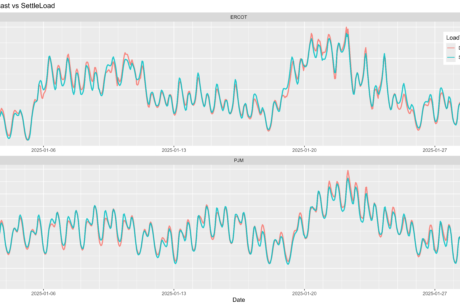As Retail Energy insiders, we are always thinking about the next big thing for the market, be that new products and services or new markets to pursue. While many Retail Suppliers are investing time and dollars into influencing market openings in the South and West, many states in the Northeast are moving closer and closer to ‘re-regulation’. Imagine for a moment, you wake up tomorrow in 2030, would you think there are more States open to retail power and gas competition, or less?
That question is a difficult one to answer. Both New York and Connecticut have made drastic changes in the last several years that make residential marketing painful, if not unprofitable. In Massachusetts, there have been multiple bills floated that would reduce or eliminate retail choice outside of municipal aggregations.
There is also no shortage of negatively-slanted articles – for instance, “Energy Deregulation is a Sham” and “Buyer, beware: Arizona’s deregulation plan could skyrocket your power bill”. If consumers base their opinions on the messages prevalent in the media, any rulemaking requiring a vote would be unlikely to pass.
Why this negativity about retail competition? One common theme is consumer manipulation. Whether it is from an unsavory door-to-door vendor or fine print in a contract that sees the rate after the contract doubles (or more), residential consumers in many competitive states feel they have been taken for a ride.
Another is the lack of price competitiveness. This was clearly demonstrated when NOPEC decided last year to return its customers back to the utility because they could not offer material savings. While this was a wonderful move for their customers, it demonstrates how quickly market prices can swing and reduce or even eliminate consumer savings.
Lastly, there is a reputation problem. The impact of events like Winter Storm Uri, which are beyond the control of Retail Suppliers, got 1000 times the press of any retail cost savings message in the last 10 years. Although we know that Retail Choice was not the cause of the issues experienced during Uri, the industry has failed to make that clear to the average consumer.
If I’m a consumer in Louisiana or Oklahoma, who did not lose power through the majority of the storm, I’m now fearful the same could happen if my state moves to Retail Choice. We have a lot of work to do as an industry to repair the damage done over the last several years in terms of reputation and to tell the success stories of retail competition broadly versus just in currently open states.
That then begs the question: why are the largest Retail Suppliers in the country focusing on new market openings? For one, the Commercial and industrial markets in states like Louisiana, Arizona, and Nevada represent a large proportion of the state’s total load. And the businesses in these states are often tied to states like Texas where retail choice is the norm.
A C&I-focused supplier could easily build a profitable business in Louisiana or Arizona, without ever signing a residential deal. And there will be a great volume of business opportunities for the entire value chain to help suppliers acquire new clients, build new systems to support them and manage compliance under new market rules. Sounds like a win?
Maybe. But where does that leave the residential-focused REPs? How will they continue to be profitable in a potentially shrinking market? Now more than ever, demonstrating your trustworthiness as a business and offering value beyond the commodity will be key to being around in 2030. This is a time when residential Suppliers will need to think outside the box to grow their business.
Does anyone want to take a bet on which suppliers are still around and which ones will be a distant memory by 2030? I think that sounds like a Las Vegas kind of gamble – but we vendors are rooting for you all. It is going to be an interesting rest of the decade, for sure.
By: Dominique Bourda, Managing Principal, CAPCO











